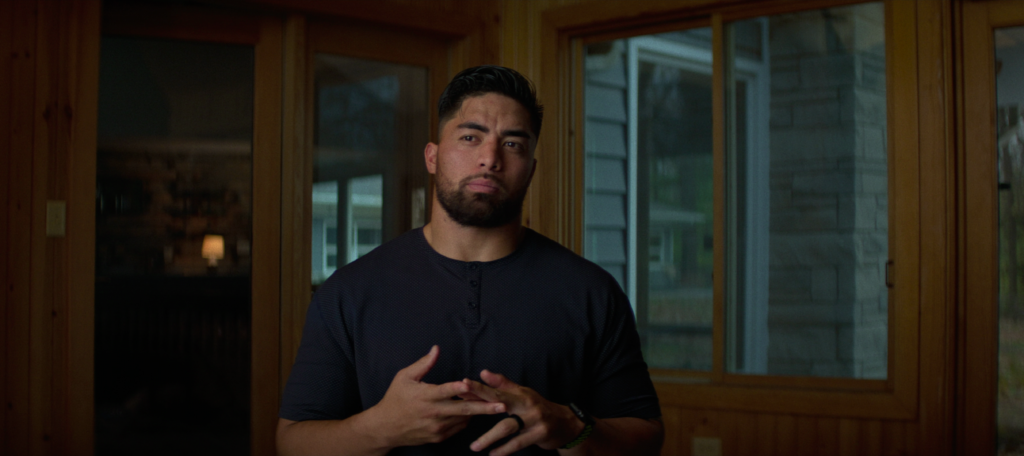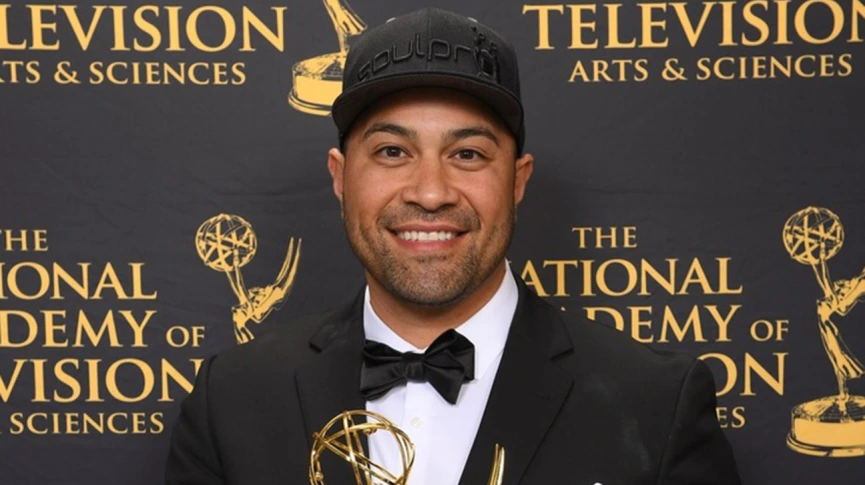When sports media broadcasting became a 24/7 enterprise, stories which sprouted from the culture of sports became just as important as any feature about a star athlete’s performance. And, when those stories are framed around character traits in a positive way, avid sports fans absorb them, often becoming even stronger followers and admirers of a rising star athlete. But, when those stories focus on character aspects in a negative frame, even when they are not incriminating, the effect can skew the fan’s biases, especially in their emotional reaction to such stories, regardless if the facts indicate otherwise.
Media exposure is a double-edged sword, a point that rarely is made when mentoring young athletes with star promise who suddenly find themselves in the piercing gaze of national media coverage. And, when public sentiment reverses course in a flash and snap judgments inundate the spectrum, the young athlete often is left alone to comprehend how something could have changed so dramatically, even before they have been able to process what has happened.
It has been nearly 10 years since Manti Te’o experienced such a dramatic reversal. The All-American linebacker, in his senior year at Notre Dame, commanded the hearts of fans across the country, especially after his grandmother and girlfriend died within hours of each other. For reporters covering the culture of sport, Teo’s story was perfect. He was the young Polynesian athlete who was the epitome of a culture based on the pillars of faith, family and football. Being a 2012 finalist for the Heisman Trophy, many observers predicted that he was a certain first-round draft pick for the NFL.
But, when the story emerged that his online relationship was a hoax and there was no girlfriend who had died from leukemia, no one had prepared Te’o for the merciless public scrutiny or ridicule. The unfolding drama sent sports media outlets scurrying to cover their tracks, while blaming the subject of its unrestrained softcore admiration, without bothering to check and verify the story’s facts before running their accounts.
For today’s premiere of the second volume of Netflix’s UNTOLD, its sport documentary series, the first two episodes titled The Girlfriend Who Didn’t Exist, directed by Ryan Duffy and Tony Vainuku, revisit Teo’s story. They include his first extensive public interview about the matter in nearly a decade, along with interviews of the person who was behind the online identity, Ronaiah ‘Naya’ Tuiasosopo. The Emmy-winning Vainuku, whose documentary about four Polynesian football athletes, In Football We Trust, premiered at Sundance in 2015, is from Salt Lake City and is a Westminster College alumnus.
Duffy already had secured access to Tuiasosopo for filming. In an interview with The Utah Review, Vainuku, a Polynesian-American who played football during his high school years in Salt Lake City, says it made sense for him to try to gain access to Te’o because it might be more “comfortable to be in the same room with people who are similar.” But, he adds that “it was not a quick yes.”
Among the last interviews Te’o had done on the matter was in early 2013 with Katie Couric, in the immediate aftermath of the revelation. It was an appearance that did everything but alleviate the skepticism and allegations that either the relationship hoax was a cover for him being gay or that he was in on the hoax because the tragic story about a girlfriend’s bout with leukemia had magnified his media currency.
“He was betrayed in a lot of ways by the media,” Vainuku says. “The timing was right for now. He felt this was the best way to put it to rest and he said that he genuinely cared about his fans and at the end of day he wanted to make sure not to leave any unanswered questions.”
Cogent and thoughtful, the two-episode documentary offers epiphanies that extend well beyond what is suggested by the marketing teaser of its title. Most significantly, it is a satisfying closure for Te’o as well as Tuiasosopo, who at the time of filming, was going through gender transition. Tuiasosopo played high school football in southern California and after graduation, became a musician with the Oasis Christian Church in Antelope Valley.
Vainuku says that viewers should set aside momentarily their 2022 “catfish” lens to comprehend the context of what transpired during this online relationship. Furthermore, the documentary leads to truths well beyond the focus on a tale of “catfishing.” At the time when their online relationship began, the phenomenon of “catfishing” was not as widely known as it is today. In 2010, filmmaker Yaniv ‘Nev’ Schulman had premiered his documentary Catfish about his own experience with falling in love online with a woman who turned out not to be the identity she claimed. It was only two years later, the same year when Te’o was a senior at Notre Dame, that MTV launched the Catfish television series. Catfish the TV Show became popular and featured stories of all stripes, including scams, plots of revenge and experimenting with gender and sexual identities.
In archival video footage as well as their interviews, it becomes apparent that loneliness and isolation had led Te’o and Lennaya Kekua, the online name Tuiasosopo used in the profile, to connect with each other. At some point, Tuiasosopo realized the fake profile was about to spin out of control but was also desperately trying to sort out the least auspicious way to exit and regroup. Right before Christmas and the biggest games of Teo’s college football career, Te’o was shocked to learn that Lennaya Kekua did not die, which became the first domino to fall as the entire hoax unraveled.
Without a doubt in watching both episodes, to quote Vainuku, Te’o “is the definition of faith, family and football.” His high school career in Hawai’i became a badge of pride for his parents, who were excited about his college prospects. There is a passing but noteworthy moment in the film when Te’o’s father talks about obedience (something Tuiasosopo also referenced). As In Football We Trust portrayed, Polynesians are 28 times more likely than any other ethnic group to make it to the NFL. Like his parents, Te’o also valued his spiritual ties to The Church of Jesus Christ of Latter-Day Saints.
He had intended to sign with the University of Southern California, an ideal location which would have kept him close enough to his home in Hawai’i and which would have made it easy for his parents to travel for home games. But, he surprised everyone when he signed with Notre Dame, which pinned hopes on Teo’s skills to help restore the Catholic university’s legendary reputation as one of college football’s winningest institutions. South Bend, Indiana, was not the smoothest transition for the freshman, where winters could be bitter and he did not have access to a close-knit Polynesian community, especially those who also were LDS.
Meanwhile, Tuiasosopo, whose father was the pastor of the church, was thinking about a music career. Ironically, Tuiasosopo, who despised football, played the sport purely for the sake of obedience because the father and uncles had played college and pro football variously in their careers. The parallel interviews of Te’o and Tuiasosopo are genuine examples of reciprocated mercy. Tuiasosopo is sincere in her remorse while Te’o, who is married now, epitomizes grace and acceptance, holding no grudges against Tuiasosopo while reinforcing the importance of his LDS faith.
The documentary also is an excellent piece about media literacy, with a lesson for sport fans, as Vainuku explains, which means “realizing there is more than wins and losses involved.”
Timothy Burke and Jack Dickey, reporters for the now-defunct Deadspin digital news site, also appear in the documentary. Acting on an anonymous tip, they accomplished what no other media, including the national heavy-hitters in print and broadcast outlets, were able to do. They made fast and light work in their investigation, which ran Jan. 16, 2013, with the headline, Manti Te’o’s Dead Girlfriend, The Most Heartbreaking And Inspirational Story Of The College Football Season, Is A Hoax.
The Deadspin report did more than bring the first semblance of confirmed and consistent information to the story. National media reports had produced a long trail of conflicting details, which no one had bothered to verify for accuracy. In the vacuum of solid information gathering, the space was overwhelmed by wild rumors, innuendo and allegations, which made it that much more difficult for Te’o to weather the maelstrom that eventually would devalue his currency in the NFL draft. He was selected in the second round by the San Diego Chargers. Now a free agent, he also was with the New Orleans Saints and, more recently, the Chicago Bears.
The documentary sets up a deserved chastising of the culture of sports journalism. For example, in their haste to cover their errant tracks, Sports Illustrated deleted its cover story about Te’o continuing to play after hearing the news of his girlfriend’s death, occurring so soon after his grandmother died. Likewise, ESPN, which had been called out for its gratuitous piece in 2012, still was aching to ask “hard questions” of Te’o, in its effort to redeem its sloppy journalism surrounding the story by doing its own retrospective for its Backstory series in early 2021.
To this day, major sports media outlets still do not comprehend the risks and consequences of pushing softcore journalism. In 2021, gymnast Simone Biles was central to NBC’s promotion of the Tokyo Olympics but when she withdrew from competition, it became a telling moment to see how the sports media would handle the story, along with questions about mental health stresses that elite athletes face. In general, the media did better than expected. Similar questions arose earlier in the year with one of tennis’ top athletes Naomi Osaka, who withdrew from the French Open. Brian Moritz, a journalism researcher at St. Bonaventure University, who studies sports media, wrote about how the theory of sport ethic helps to explain the story of Biles and other star athletes. He explains that sports media perpetuate this ideal with four key traits: “Being an athlete involves making sacrifices for The Game. Being an athlete involves striving for distinction. Being an athlete involves accepting risks and playing through pain. Being an athlete involves refusing to accept limits in the pursuit of possibilities.”
In 2021, for his Internet Nostalgia series at Medium.com, William Leitch, who founded Deadspin, said their story “wasn’t about Te’o, who, after all, was just a naive kid playing his part in a larger system. It was about the lies we tell ourselves to keep going, about ‘upworthy; feel-good hokum that’s disconnected from reality but thrives because it makes us feel better for a few minutes over our Cheerios. It was about so much of what we consume being, at its core, bullshit. That wasn’t the message people took from the Te’o story. They took it as a ‘catfishing’ story. It became another way to flatten the story and miss the larger point.”
Regarding this theme in the documentary Duffy and Vainuku made, the point is sharpened effectively. One can only imagine what the onslaught would have been like had the story broken in 2022, especially with the swift ostracizing effects of the cancel culture phenomenon. Finding closure after a decade, Te’o mentions that he hopes to help others who encounter similar stresses in trying to fulfill an elite role in the larger realm of athletics. Undoubtedly, the UNTOLD episodes finally give Te’o the opportunity to reclaim everything he had lost and to do so on his own terms.
Vainuku is working on a narrative series about Samoan pro football athlete Junior Seau, who died in 2012 from chronic traumatic encephalopathy (CTE), the progressive and fatal brain disease that has become prevalent in the NFL. He also is directing the docu-series American Gladiators with Campfire Films.





